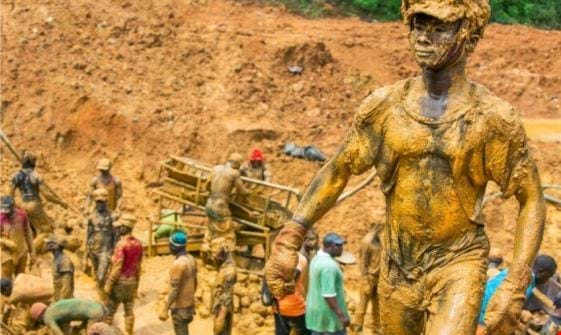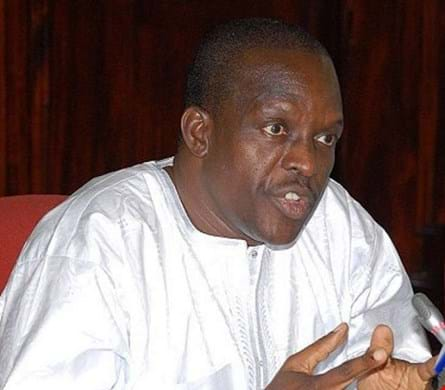A new government arrives with its own vision but is often thwarted by unexpected fiscal realities which shape its eventual progress. For the new NPP administration, not only has this been the case, but internal eruptions within the party’s own ambit have also added to the distractions. All the problems of governance that have bubbled to the surface, boil down to one basic cultural imperative. The corruption of the administration of law and particularly its enforcement in Ghana. One of our weakest institutions is the Ghana Police Service. This continues to be a major risk to the administration of justice in the country.
Freedom and Justice our motto is. We enjoy freedom to the point of chaos. There are no political prisoners to speak of but is there justice in Ghana for most? There is no social justice, if the ordinary requirements of daily living are generally out of reach for most. The functions of governance are financed by a tax to GDP ratio of 20%, though better than many African countries, points to the need for much needed functional transformation of all our institutions of revenue acquisition from local government units all the way up to central government. The reality is that nothing works because we only pretend to pay for services and most income earners do not contribute to the revenue base.
No society can grow and progress without order. We continue to be a largely emotional and non-analytical society, with little regard for real facts, data and knowledge. We are for the most part a non-science based society, explaining everything from chronic leg ulcers, mental illness and meningitis epidemics with a catch all cause, "spiritual". Those who have facts, data, real knowledge, are terrorized by the loud and ignorant into silence and obscurity.
This is the context within which we attempt to compete in the global marketplace. We must begin a revolution of reason and mass education or we will continue to stumble aimlessly in the search for a better life of our citizens.
The current Galamsey crisis is emblematic of our disordered and corrupt processes of the administration of law and policing, in particular. Greed, abuse of power and a callous disregard of the long-term costs to society have perpetuated this completely home-grown disaster. In Ghana, people seek posts or positions not as an opportunity to serve the nation. The word missing in describing public roles is responsibility. This word strongly implies accountability, which never appears as an actor on the public stage. As long as we continue to be ambivalent about holding individuals accountable for their actions, within the public space, little will change in Ghana. This requires courageous and determined and fearless leadership addressing the cancer within our own national experience.
So how do people acquire land for Galamsey? If land is illegally acquired for this purpose from chiefs, are they held legally responsible for the cost to society in the form of poisoned water, destroyed flora and fauna, unregulated deaths in mining pits and the spread of malaria from all those abandoned pools and pits? Someone has to be held responsible for the remedy to this horrendous attack on the environment and our own very future as a nation.
Who is responsible for inspecting if surface miners are licensed and are mining in an ecologically sustainable manner? Minerals Commission? Police? Environmental Protection Agency? Who has failed in their duty to the nation? These problems have not occurred magically. Real people, not “faceless” people, as we like to say, are responsible for these problems, living in plain sight.
How would thousands of Chinese find their way to Amansie West, if immigration laws are not being flouted? Are Ghanaian immigration authorities doing their job? If not, how are they being held accountable? The Chinese are not to blame. They are merely a symptom of very chronic and destructive national disease. Of course, if they have broken laws, they must pay the price as well. They may be most helpful in leading us to the central Ghanaian players in this national tragedy.
It is very painful to watch Ghanaians on viral videos engaged in an activity which will shorten their lives from mercury poisoning, though at the point of death, they will ascribe their fate to spiritual attacks and the like, saying they have a right to destroy drinking water sources and deforest the land in pursuit of fools' gold. The long term costs to everyone as they pursue their near term riches, do not even occur to them. They present themselves as having no choice but there is always a choice. The government speaks of “resettling” Galamsey workers. This whole phenomenon is again a symptom of the failure of successive governments from both major parties to educate our young people and provide them with skills for fully participating in a growing and otherwise potentially competitive economy. Gold has always been in the ground but we have never been suicidal as a society in its pursuit. This is because we used to be a reasoning society with leadership that enforced the law. No society with functioning law enforcement agencies should look like many districts look right now.
No self-respecting culture will prostitute its environmental legacy as we have done with a parliament, a judiciary and an executive presidency looking on as spectators, as happened in Ghana. At some point, our leaders have to be true to their sworn oaths to serve and protect us. Chiefs, Ministers, Police and all other officers of the land involved, must be identified and prosecuted. The cost to the country is unspeakable. We will need hydrologists, engineers, soil scientists, foresters, public health experts and more to repair the damage caused. Against this background of the cost of restoration, it makes no sense that seized equipment is burnt randomly by undisciplined youth in affected districts. Everything has value. This is often lost on Ghanaians.
Invincible or Invisible Forces? I don't know which is correct, as these words are used interchangeably in the Ghanaian press as if they are synonymous. Illiteracy rules and nobody cares! These unruly youth crop up after each change of government, seize public toilets, toll booths and other state and municipal properties because their parties have won. Again, the idea of personal responsibility is foreign to these groups affiliated with our political parties and they are openly enabled by political leaders for short-term reasons. The youth of political parties have no training in the ethics of citizenship and have no education on the ideological basis of their parties. They plunder and pillage state properties, defy courts of law and are slapped on their proverbial wrists. The failure of the prosecution to progress in current case of the so called Delta Force before the courts is another indication of poor professionalism and ineptitude of the Ghana Police Service. This is a failing institution all round and the administration of justice suffers for it.
Irresponsibility in Ghana is so entrenched that, even at post offices, the paid staff hold parcels hostage until they are paid a bribe by the recipients. In every corporate para-statal organization, such acts of unrestrained corruption and theft thrive under the supervision of those paid to ensure the public is served. This is the culture of impunity and disorder that pervades all levels of our society.
In this context, while I understand the basis of the “One district-One factory” policy of the NPP government, the dangers of placing $1m in the hands of ill- prepared and poorly trained party apparatchiks are immense. My firm belief is that every district should identify key sanitation projects and start there. I also believe the districts should also raise 5-25% of the $1m depending on their tax base, as a partial match and have clear business plans vetted by independent business reviewers before a pesewa is allocated and spent.
Sanitation is a key problem with implications for health, education and tourism sectors, with the potential to attract more people and capital to poorer districts.
Investments must be made in early childhood education, adult literacy, civic education and resource support of peasant farmers before we leap frog to factories, or these projects will end up as “white elephants”, suffering the same fate as the old state corporations of the first republic. The human resource element, though nuanced, is critical to the success of such a transformational national project.
We must learn to get the simple things right first before we build cities on the hill tops.
Source:




 Excellent
Excellent








